Col. James H. Cravens was born in Rockingham County, Virginia, August 12th, 1802, and died December 4th, 1876, at Osgood. In early life he learned the gunsmith’s trade, but becoming dissatisfied began a study of law in the office of Col. John Kennedy, of Harrisburg. In 1823, after passing examination, he was admitted to the bar and began his practice in Pendleton County, Virginia. December 23rd, 1824, he married to Sophia Capito. The marriage was a “runaway match” but was a happy and wise one. In 1829 they settled in Jefferson County, Ind, and in 1831-2 he was elected by the Whigs to represent Jefferson County in the House of Representatives in the General Assembly. In March, 1833, he moved to Ripley county and soon became a leading lawyer and politician there. He was chosen Senator by the Whigs of Ripley County in 1839. Later he was selected by his party as one of the candidates for Elector for President and Vice-President at the great Whig convention which assembled at Indianapolis, January 16, 1840. He entered at once upon the canvass and his success was remarkable. He was a member of the Electoral College that cast the vote of Indiana for Harrison and Tyler. After the election of Lincoln war was upon the people. At the age of nearly three score, he rushed into the service of his country and was commissioned Lieutenant Colonel of the 83rd Regiment of Indiana Volunteer Infantry under Col. Benj. J. Spooner. He was compelled to retire in a short time on account of ill health. When he heard of Morgan’s raid in Indiana, he, full of enthusiasm, rallied his fellow citizens to resist their progress, at Versailles, but beore organizing, the force arrived and he was taken prisoner. It is said that Morgan told him that he understood he was one of the original abolitionists who had gotten up the trouble the between the North and South and asked him if he had been rightly informed. Col. Cravens promptly answered, “Yes.” There upon Morgan said “suppose I should hang you for it?””Well,” said Cravens ” suppose you should; you wou wombldn’t cheat me out of cleanmany days, and I should die satisfied in having lived out my time amd had a good time while I did live.” Then said Morgan, ” They tell me you live in the little town of Osgood,up here on the railroad. I have a notion to burn it for you.” “Burn it and be d__d. It isn’t much of a town anyhow.” Morgan finally released Cravens and his men on the condition that they would not follow him. They assented the more readily as they had no means of following him if they wanted to. Cravens lived to see freedom throughout the whole country. He lived to see all the states restored to the Union after their terrible separation and strife, and finally, he saw the great centennial jubilee of his native land and witnessed the peace and harmony throughout the States, and the advancement for popular education, development and advancement that had been made. For two years preceding his death he felt that he needed rest. He passed away in peace, dreading nothingin the unknown, at Osgood, December 4th, 1876.

